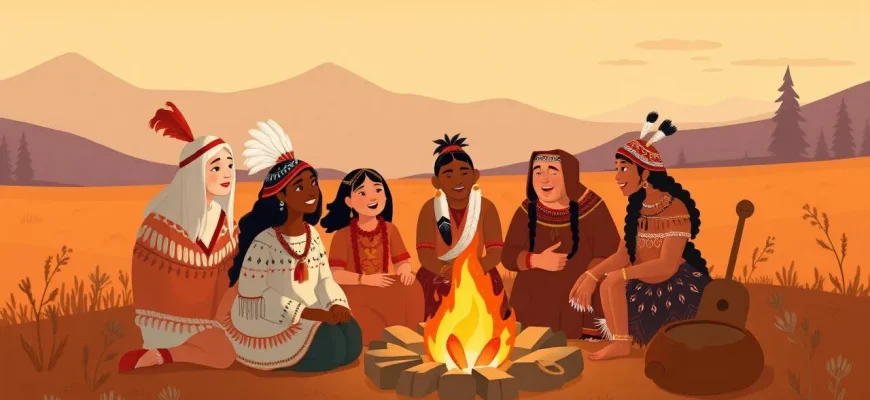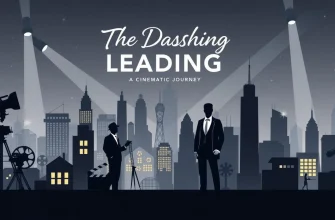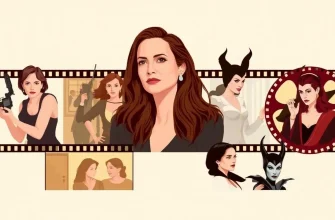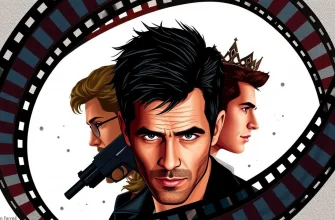This curated collection of films focuses on the rich tapestry of Indigenous cultures, offering a window into their traditions, challenges, and triumphs. These family-friendly movies not only entertain but also educate, providing a deeper understanding and appreciation of Aboriginal and Native American heritage. They are ideal for viewers of all ages who wish to explore diverse narratives and foster cultural empathy.

Smoke Signals (1998)
Description: This is the first feature film to be written, directed, co-produced, and acted by Native Americans. It explores themes of friendship, loss, and cultural identity among the Coeur d'Alene people.
Fact: The film was made on a very low budget and was a critical success, winning several awards at Sundance Film Festival.
 Watch Now
Watch Now The Tracker (2002)
Description: Set in early 20th-century Australia, this film follows an Aboriginal tracker who helps the police hunt down an Aboriginal fugitive, revealing the complexities of colonial relationships.
Fact: The film uses a unique visual style with paintings by Peter Coad to depict scenes, enhancing the narrative's impact.
 Watch Now
Watch Now 
Rabbit-Proof Fence (2002)
Description: This film tells the true story of three Aboriginal girls who escape from a government camp to return to their families, highlighting the Stolen Generations in Australia. It's a poignant journey of resilience and cultural identity.
Fact: The film was directed by Phillip Noyce, and the lead actress, Everlyn Sampi, was discovered in a remote Aboriginal community.
 Watch Now
Watch Now 
Whale Rider (2002)
Description: Set in New Zealand, this film follows a young Maori girl who aspires to become the leader of her tribe, challenging traditional gender roles. It's an uplifting story about determination and cultural heritage.
Fact: The film was based on the novel by Witi Ihimaera, and the lead actress, Keisha Castle-Hughes, was nominated for an Academy Award at age
 Watch Now
Watch Now 
The Sapphires (2012)
Description: Inspired by true events, this film follows four Aboriginal women who form a soul group in the 1960s and travel to Vietnam to entertain the troops, showcasing their journey of self-discovery and cultural pride.
Fact: The film was adapted from a stage play, and the real-life Sapphires performed at the film's premiere.
 Watch Now
Watch Now 
Charlie's Country (2013)
Description: This film delves into the life of Charlie, an Aboriginal man struggling with the changes in his community due to government intervention, highlighting issues of identity and autonomy.
Fact: The film was written by and stars David Gulpilil, who has been a prominent figure in Australian cinema since the 1970s.
 Watch Now
Watch Now 
Sweet Country (2017)
Description: Set in 1929 Australia, this film tells the story of an Aboriginal stockman who kills a white man in self-defense and must flee across the outback, exploring themes of justice and racial tension.
Fact: The film won the Platform Prize at the Toronto International Film Festival, recognizing its innovative storytelling.
 Watch Now
Watch Now 
Walkabout (1971)
Description: An early film exploring cultural differences, it follows two white children lost in the Australian outback who are helped by an Aboriginal boy on his walkabout.
Fact: The film was shot in the Northern Territory and features stunning cinematography by Nicolas Roeg.
 Watch Now
Watch Now 
Ten Canoes (2006)
Description: This film, set in Arnhem Land, tells a story within a story about a man who learns from his elder brother about love, jealousy, and tribal law, all while searching for geese eggs.
Fact: It was the first Australian feature film entirely in an Aboriginal language, Yolngu Matha.
 30 Days Free
30 Days Free 
Samson and Delilah (2009)
Description: This Australian film portrays the lives of two young Aboriginal people from a remote community, dealing with poverty, substance abuse, and their quest for a better life.
Fact: The film won the Camera d'Or at the Cannes Film Festival for best first feature film.
 30 Days Free
30 Days Free 








